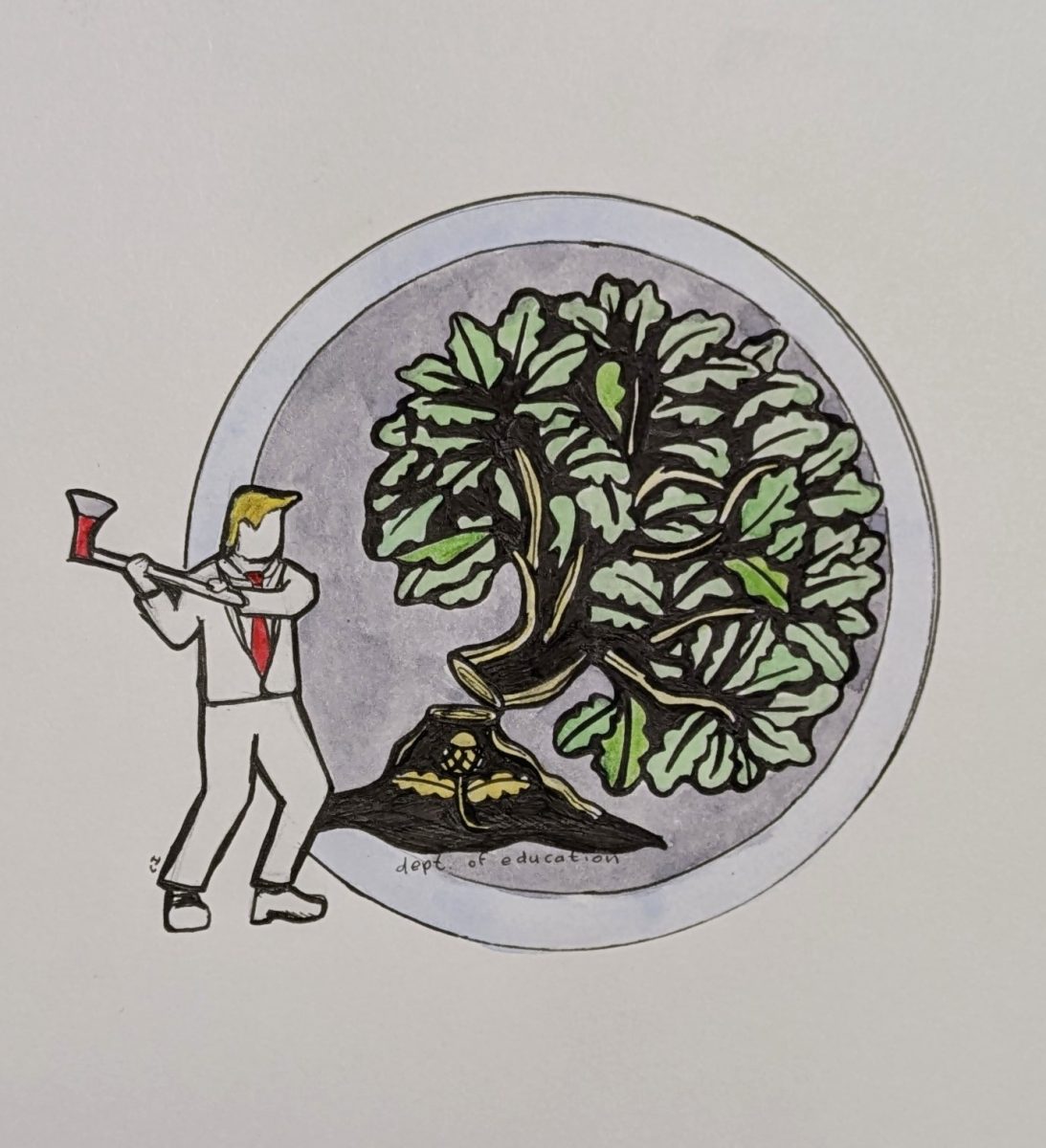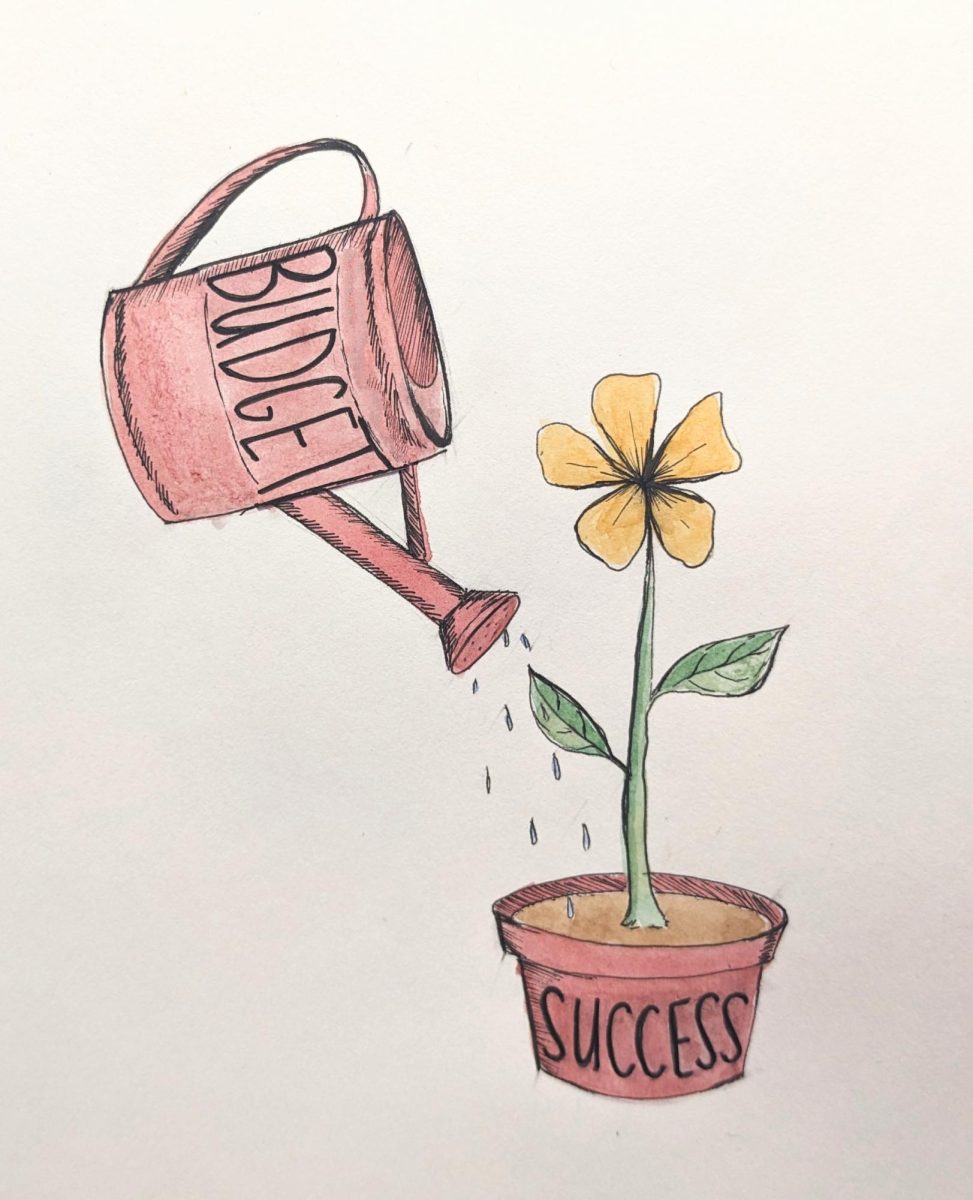This previously ran in our February 2024 issue.
Across the United States, a dangerous new political landscape is forming: a news desert like never before. As newspapers across the nation shut down and disappear at alarming rates, the threat of losing local journalism — an institution that is integral to the function of the U.S. — can no longer go unaddressed. In order to preserve the integrity of our communities, we must protect our local press.
News deserts, as defined by the Center for Innovation and Sustainability in Local Media, are communities with limited access to credible, comprehensive, or meaningful news and information. In the past 20 years, these wastelands have grown at unprecedented rates; with over 2,500 newspapers — a quarter of all papers in the United States — shutting down.
It seems like we can learn about news easier than ever due to access to the internet, but this is not necessarily true; even though we have more communication on a national level, our local papers are going under, and as we lose their voices, we lose our grasp on what goes on in our own communities.
News deserts have many causes, the most notable being the increased use of the internet as a means of sharing information. While the internet made news more accessible, it also made profits for smaller-scale papers less sustainable. According to the Manhattan Institute, only ten years ago, subscriptions to papers accounted for 20 percent of total revenue, with the remaining 80 percent of revenue coming from advertising.
Now, as the internet has become more available, many of the classified ads that were once published in local newspapers are now placed for free on internet sites like Facebook Marketplace, and fewer people subscribe to newspapers, as they are now able to find most national news online or through social media. In all, local papers are left with fewer sources of revenue to sustain themselves with. Thus while the internet has made news more widely available, it is, paradoxically, causing the death of small newspapers.
Another major factor contributing to the loss of community news sources lies in concentrated news source ownership, or media consolidation. When large news corporations buy smaller businesses or grow to be major news sources that outcompete smaller newspapers, media consolidation takes place.
While these larger sources continue to thrive, smaller papers lose their own viewers and readers, ultimately losing their voice to a larger source; one that does not have the same community relationship, or the same personal connection with its audience. In addition to this, these larger news sources often have a much stronger focus on national news, and consequently fail to report on local news.
When media consolidation promotes larger corporations that share only what seem to be “big” stories, issues within a community — issues that are just as relevant to the everyday lives of those communities as those being reported by the large news corporations — can go entirely unnoticed and unreported.
The effects of news deserts can be seen right here in Pa.
According to the Hussman School of Journalism and Media, in Pennsylvania, there has been a 29 percent decrease in the number of local papers running. In 2004, there were a total of 308 reporting newspapers operating in Pa. Only 15 years later, in 2019, that number was down to 219 newspapers across the whole state. As a result, within Pennsylvania, the circulation of newspapers, or the quantity of newspapers that are printed and distributed by a publication, has gone down 40 percent, from 5.3 million copies in 2004 to 3.2 million in 2019.
While Lehigh county only has a total of seven newspapers, other Pa. counties have even fewer. Both Union County, which has a population of over 40,000 people, and Montour County, with a population of over 18,000 people, have no local newspapers reporting.
This trend isn’t limited to Pennsylvania. According to Northwestern University, in 2023, newspaper closures have accelerated to a rate of 2.5 shutdowns per week. Since 2005, the U.S. has already lost a quarter of all newspapers. At current rates, we are projected to have lost a third by 2025.
When we lose local papers, we lose local voices.
It is these same small papers that are at risk of shutting down that also contextualize local issues and put them into the perspective of our own communities.
Within the realm of journalism, it is vital that all issues are being reported on. When large companies come to dominate publishing and push out the smaller, local newspapers, we lose sight of how issues of equal importance are occurring right within our communities. Local issues are just as important as national ones; they deserve to be reported on too. If we do not have local news sources to report on them, we risk letting important issues go unaddressed.
It is our responsibility to support local press, and to prevent news deserts from expanding any further. Preventing news deserts from spreading can be as simple as checking the local news before you check national news, or subscribing to newspapers that operate near you, rather than exclusively searching for news sources that operate on a national level.
News deserts stand not only as a threat to journalism, but as a threat to our own localities. By letting news deserts expand, we run the risk of losing key insight into the issues that affect us directly in our communities each and every day.










